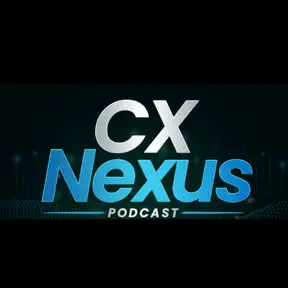
Adapting Your Community Strategy Through Organizational Changes
If there’s one constant in the world of business, it’s change. As a community manager at a tech company, change is guaranteed to come swiftly and frequently. Your managers will turn over, company priorities will shift, new directives will emerge. While business agility is crucial, constant flux can be destabilizing for customer communities that require consistency.
So how do savvy community leaders continue rallying their communities effectively, even when the sands are constantly shifting?
Expect the Unexpected
First and foremost, anticipate change. Don’t assume you’ll have the same manager or team structure for years on end. Build programs with the expectation that priorities and directives will morph over time.
“Don’t always assume that you're going to have all the time in the world,” advises Nicole Saunders, Senior Manager of Global Community at Zendesk. “I'm always trying to get a couple pieces in place and then build on them really quickly. And working with urgency, I think, is a really important one. Just don't assume you've got all the time in the world.”
Have a North Star Mission
Make sure your community has a vision and purpose that transcends organizational changes. Your mission should drive value for both members and the business no matter which department you report into.
“Your community should have an objective that is kind of agnostic to all of that,” explains Nicole. “It should be something that drives value for both the business and the end users that is not dependent on a single organization.”
Document Everything
When turnover happens, you’ll need to educate new managers on your community’s purpose and impact. Make reporting and documentation a regular habit, even when it’s not explicitly required.
“The second that you are engaging with a new team, you're working on a new project, you've got a new manager, you're going to need to sort of read everybody into what the community is,” says Nicole. “I think it's really easy for all of us to assume that because our work is so public, most of the time people can just go and look at it and see it, but you really do have to sort of introduce people to it.”
Build a Broad Internal Network
Cross-functional relationships are your lifeline during turbulent times. Identify partners across the business who understand and champion your community’s value. They can advocate for community and provide context when new leaders enter the fold.
“Always be doing that internal networking, always be doing that internal relationship building,” Nicole urges. “It's just so incredibly important to have those champions, to have those shared resources, all of those pieces.”
Move Fast, Prove Value
When you spot a window of opportunity, move quickly to start programs and demonstrate community ROI. Don’t wait for the perfect moment. Release a minimum viable version now to gain buy-in for greater investment later.
“How do you do that, right? And I think one of it is, one piece of it is work with urgency,” says Nicole. “If you've got a window to get something done, do it. I'm a big fan of doing like betas or pilot programs."
Leave Baggage Behind
Don’t stew over past nos. Re-propose ideas with an open mind—the context may have changed. And don’t get too attached to any one approach. Be willing to experiment and evolve.
Remember, as Nicole puts it, “the community doesn't belong to you. It actually doesn't even really belong to the company necessarily, it belongs to the members.”
Ride the Wave
While constant change can seem disruptive in the moment, it also brings new opportunities. Each realignment offers a chance to reeducate leaders, underscore value in new ways, and explore ideas previously seen as non-starters.
Change is inevitable in business. But by anticipating it, adapting quickly, documenting results, and building allies, community pros can guide their programs to continued success amidst the turbulence.
Brace yourself for the rapids, but keep your eyes on the north star. With the right mindset and tools, you can steer your community safely through the churn.
Creators and Guests


